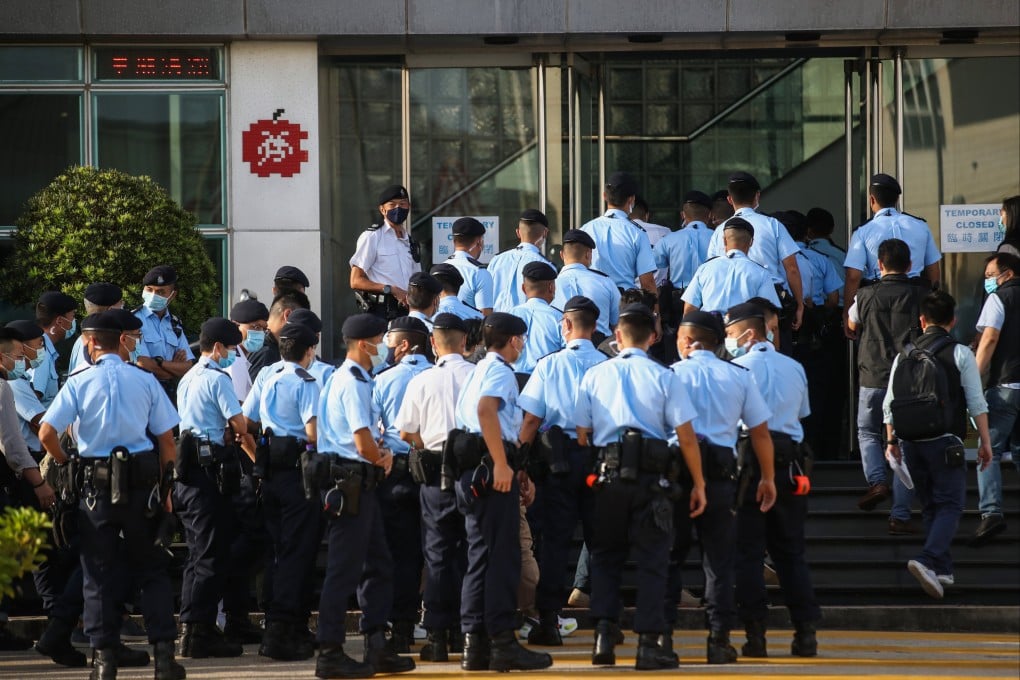Hong Kong national security law: media tycoon Jimmy Lai loses legal bid to block police access to journalistic articles on phones
- High Court judge rules that police are entitled to seize journalistic materials under common law in light of ‘paramount’ public interest
- Lawyers for Lai, 74, are considering lodging an appeal, meaning police may not be able to access tycoon’s mobile devices any time soon

A High Court judge hand-picked by the city’s leader to oversee national security proceedings ruled on Tuesday that police were entitled to seize journalistic materials under common law in light of “paramount” public interest, as the Beijing-decreed national security legislation conferred additional powers on officers investigating offences.
Lai’s lawyers are considering lodging an appeal, meaning police may not be able to access the tycoon’s mobile devices any time soon.
Lai, 74, applied to the court for the return of journalistic articles, as well as material protected by legal professional privilege, soon after a high-profile police raid on the headquarters of his now-defunct newspaper Apple Daily on August 10, 2020.
The founder of Next Digital and Apple Daily filed a second legal challenge earlier this month in a bid to bar police from inspecting the digital content stored in his two iPhones, which police obtained from his mansion on Kadoorie Avenue on the same day as the raid. He contended that some content was related to news reporting and therefore subject to privilege.
The judicial review application stemmed from a search warrant, endorsed by Principal Magistrate Peter Law Tak-chuen last month, through which officers can access Lai’s mobile phones but subject to the order of the High Court, which has instructed police to seal the devices until further notice.
Lai’s lawyers argued the warrant was invalid as the new legislation did not expressly allow law enforcement to seize journalistic materials as evidence. The only legal way to do so, they said, was to apply for permission in the High Court instead of the magistracy in accordance with local legislation.
